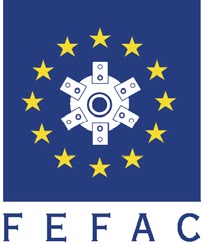FEFAC, the voice of European compound feed manufacturers, has expressed its solidarity with European livestock farmers in the light of the current market crisis. FEFAC shares the concerns voiced by COPA-COGECA regarding the drastic market situation for EU livestock products and supports their call on the Farm Council to consider immediate and targeted action to relieve market pressure on livestock producers. The feed industry’s success depends on the viability of the European livestock sector and is therefore committed to explore all possibilities to maximise the competitiveness of the feed supply chain.
For a long time already FEFAC has been pointing to the risk of diminished competitiveness of the European livestock sector because of a lack in legislative global harmonisation when it comes to feed production. Through the use of long-term contracts and the hedging of financial risks, compound feed manufacturers traditionally fulfil a service role to the livestock sector as a market “buffer” against any short-term volatility on the raw materials market. However, the feed sector’s capacity to provide effective “arbitrage” to market volatility, through using the most competitive alternative feed materials, is hampered by a series of regulatory and market restrictions, thereby threatening the strategic raw material supply.
With a view to increase the competitiveness of the European livestock farmers, FEFAC therefore recommends the establishment of a dedicated Council working group to analyse key market and regulatory pressures that impair the feed industry’s capacity to alleviate the cost burden on livestock farmers. Most importantly, FEFAC points to the current Commission’s GM import “opt-out” proposal as a severe threat to livestock farmers in Member States aiming to ban the use of GM feed materials, thereby cutting off market access to competitive feed supplies.
FEFAC strongly suggests the EU Council to seek rejection of this proposal and in its turn recommend more harmonisation of EU sanitary and trade standards related to feed production and supply, in order to ensure a level playing field for both feed and livestock producers and secure the strategic raw material supply. In addition, the EU Farm Ministers should intensify the analysis on how to increase the competitiveness of EU protein production, both for existing (oilseed meals) and alternative protein sources (algae, microbial protein and insects).
Visit the FEFAC site HERE.
For a long time already FEFAC has been pointing to the risk of diminished competitiveness of the European livestock sector because of a lack in legislative global harmonisation when it comes to feed production. Through the use of long-term contracts and the hedging of financial risks, compound feed manufacturers traditionally fulfil a service role to the livestock sector as a market “buffer” against any short-term volatility on the raw materials market. However, the feed sector’s capacity to provide effective “arbitrage” to market volatility, through using the most competitive alternative feed materials, is hampered by a series of regulatory and market restrictions, thereby threatening the strategic raw material supply.
With a view to increase the competitiveness of the European livestock farmers, FEFAC therefore recommends the establishment of a dedicated Council working group to analyse key market and regulatory pressures that impair the feed industry’s capacity to alleviate the cost burden on livestock farmers. Most importantly, FEFAC points to the current Commission’s GM import “opt-out” proposal as a severe threat to livestock farmers in Member States aiming to ban the use of GM feed materials, thereby cutting off market access to competitive feed supplies.
FEFAC strongly suggests the EU Council to seek rejection of this proposal and in its turn recommend more harmonisation of EU sanitary and trade standards related to feed production and supply, in order to ensure a level playing field for both feed and livestock producers and secure the strategic raw material supply. In addition, the EU Farm Ministers should intensify the analysis on how to increase the competitiveness of EU protein production, both for existing (oilseed meals) and alternative protein sources (algae, microbial protein and insects).
Visit the FEFAC site HERE.
The Global Miller
This blog is maintained by The Global Miller staff and is supported by the magazine GFMT
which is published by Perendale Publishers Limited.
For additional daily news from milling around the world: global-milling.com



No comments:
Post a Comment